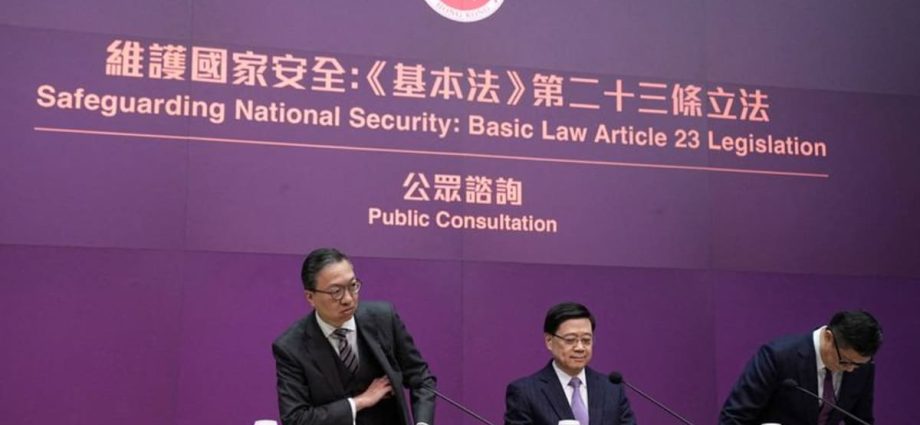
HONG KONG: China on Thursday (Feb 29) criticised British Foreign Secretary David Cameron and other foreign politicians for “smearing” an upcoming Hong Kong security law, as local authorities said feedback on the law had been largely positive.
The law, known as Article 23, will target crimes including treason, theft of state secrets, espionage, sabotage, sedition and “external interference”, including from foreign governments.
A public consultation period on the proposed legislation ended this week, with the city’s legislature, dominated by pro-Beijing lawmakers, expected to soon approve the draft laws.
The Hong Kong Office of the Ministry of Foreign Affairs issued a statement on Thursday “to express their strong dissatisfaction and firm opposition” to British Foreign Secretary Cameron and other politicians’ making “irresponsible remarks” on the legislation of Article 23.
The ministry said they were “maliciously smearing and attacking Hong Kong’s human rights, freedoms and rule of law”.
The statement followed remarks from Cameron on Wednesday that Britain had raised its concerns with the Hong Kong authorities.
“Vague references to ‘external forces’ and the new offence of ‘external interference’ threaten the legitimate and lawful diplomatic and consular activity as protected in the Vienna Convention on Consular Relations”, Cameron said.
The US State Department also said in a statement on Wednesday that it was closely monitoring the legislation and its implications for US citizens, investments, and companies operating in Hong Kong.
“We are particularly concerned by Hong Kong authorities’ proposal to adopt broad and vague definitions of ‘state secrets’ and ‘external interference’ that could be used to eliminate dissent through the fear of arrest and detention,” department spokesperson Matthew Miller said.
“We are also concerned that Hong Kong authorities will apply Article 23 extraterritorially in their ongoing campaign of transnational repression to intimidate and restrict the free speech of US citizens and residents.”

